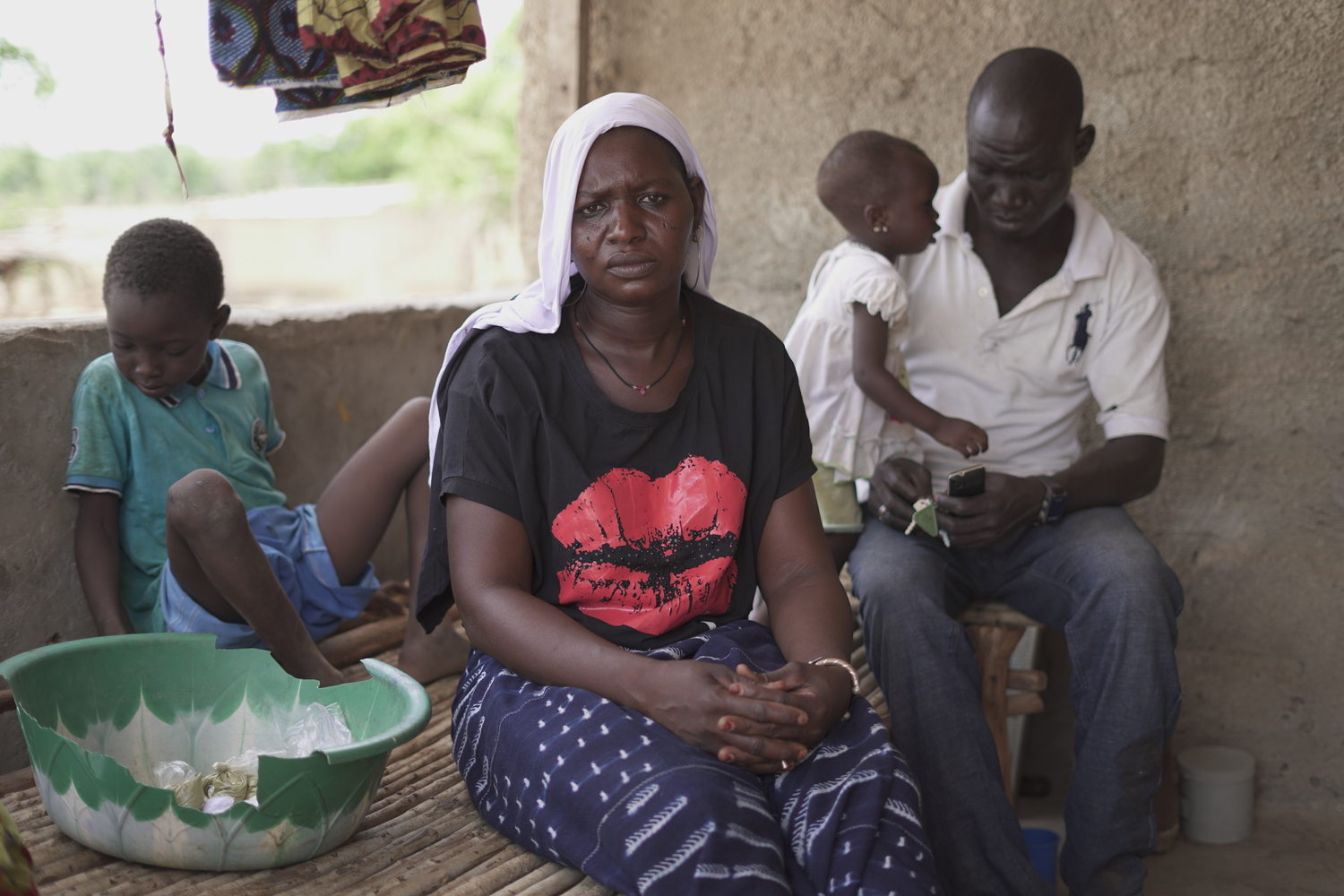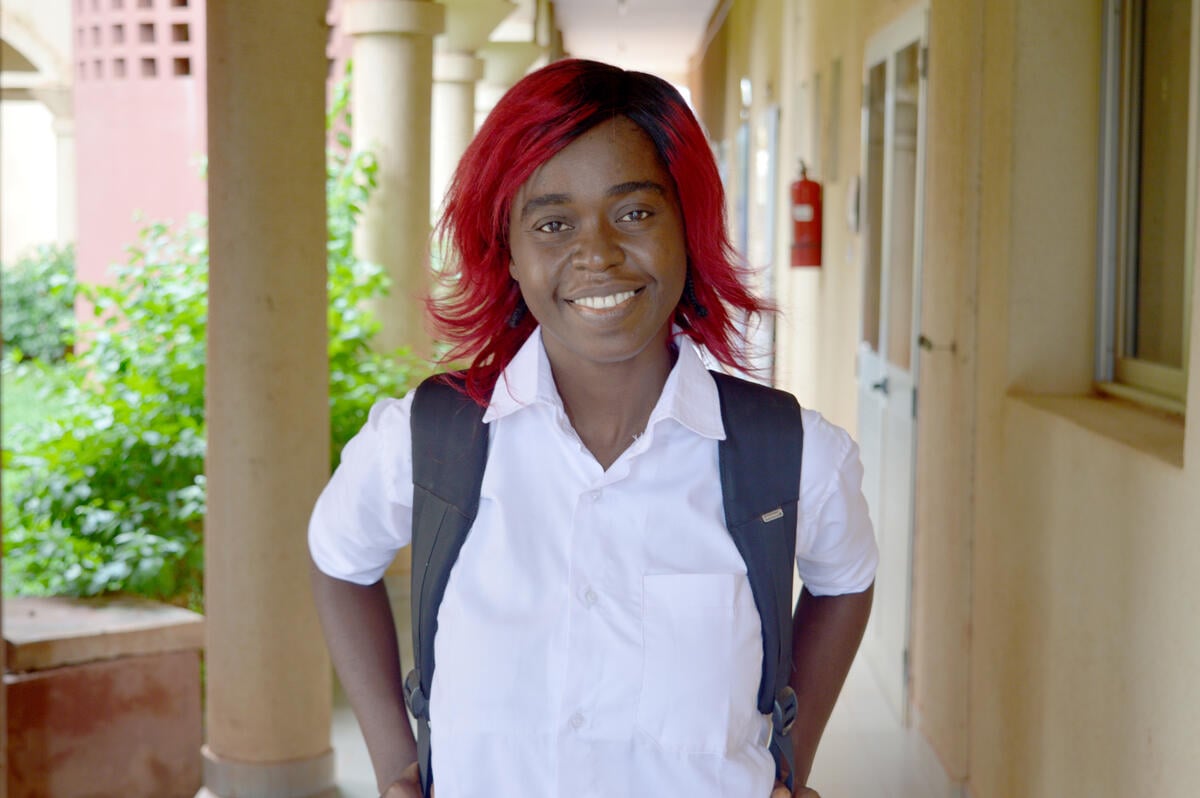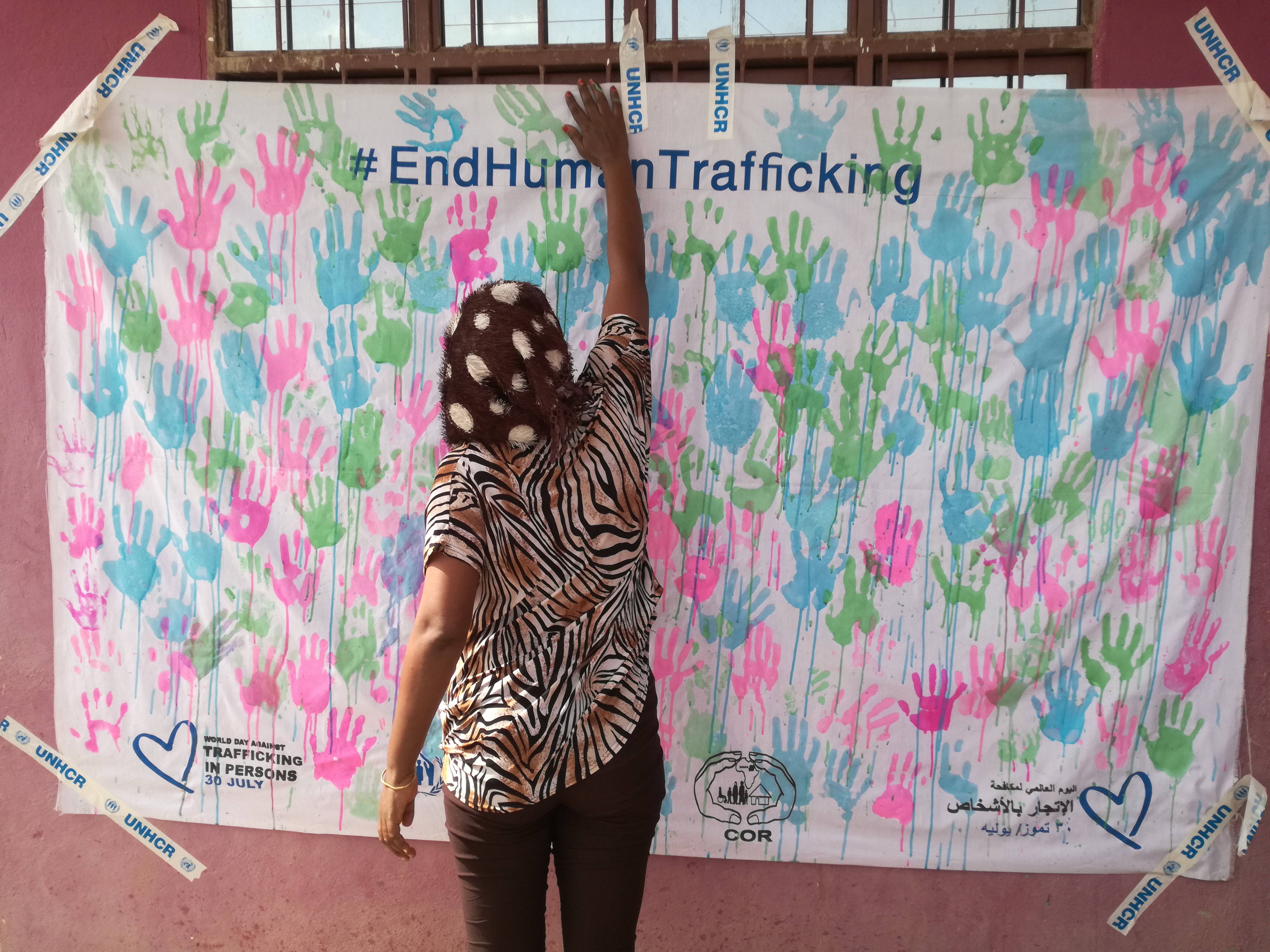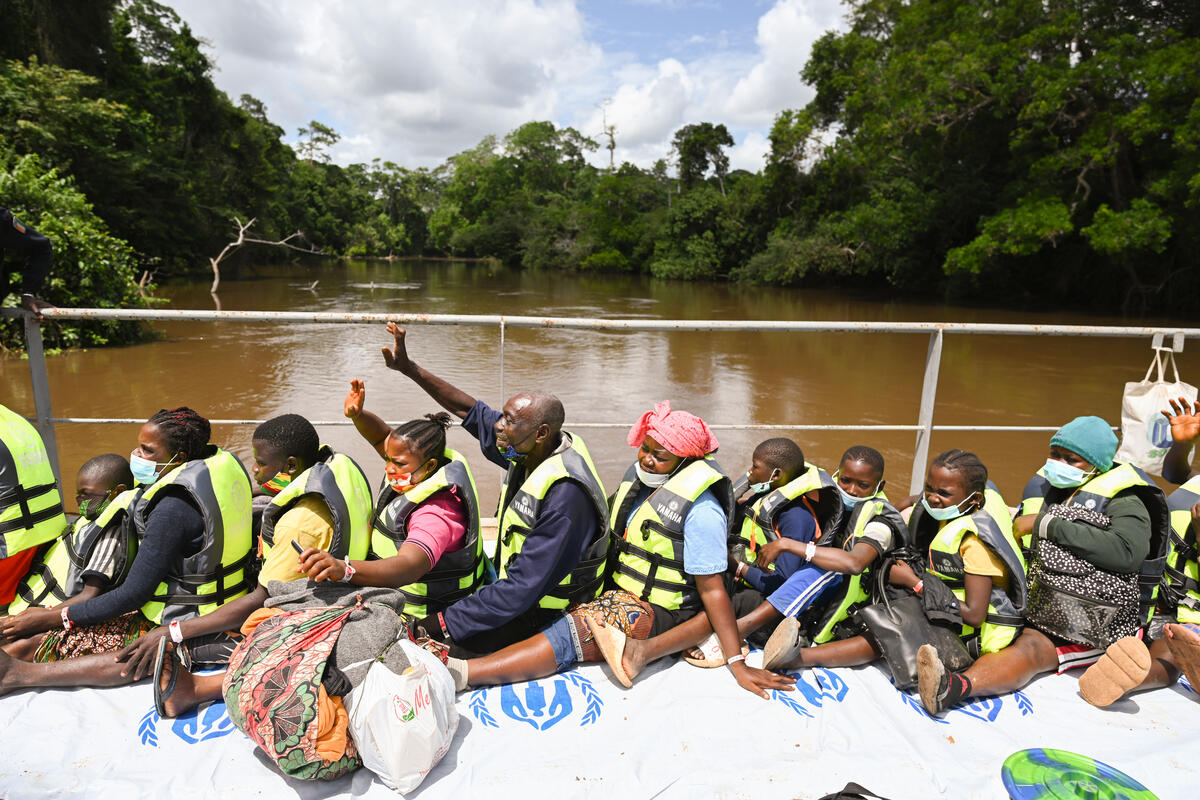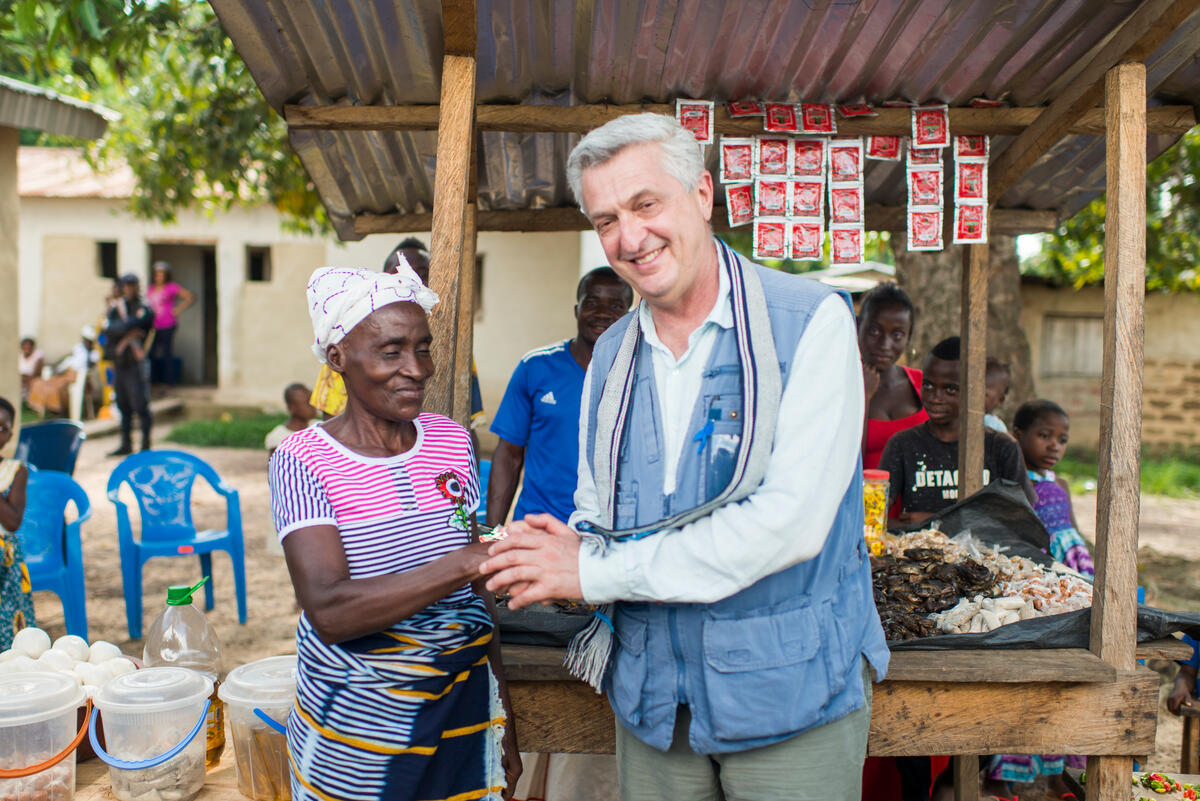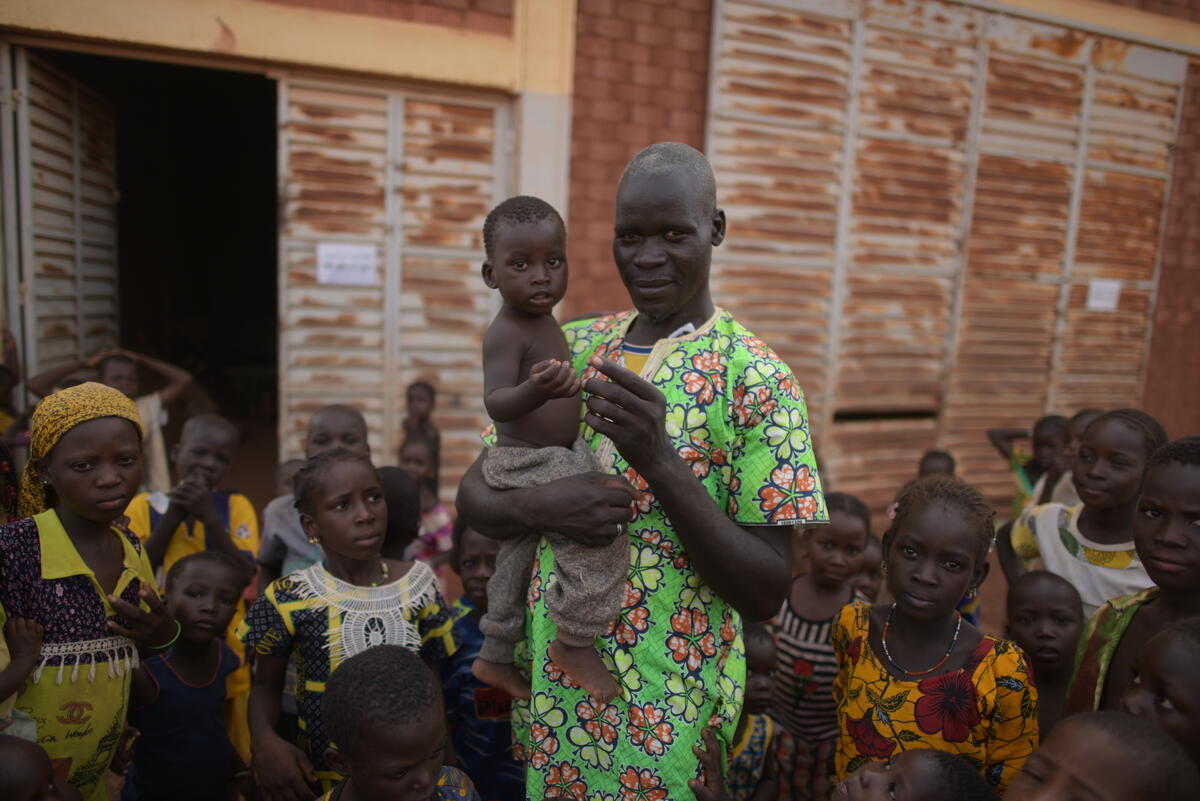Hundreds flow back into Côte d'Ivoire amid Liberian conflict
Hundreds flow back into Côte d'Ivoire amid Liberian conflict
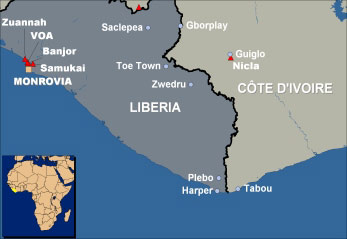
TABOU, Côte d'Ivoire, April 10 (UNHCR) - Caught between a rock and a hard place, some of the tens of thousands of people who fled fighting in western Côte d'Ivoire into Liberia are now beginning to return to Côte d'Ivoire as another conflict rages in their areas of refuge.
Earlier this week, a UNHCR protection team visited the frontier area between Liberia and Côte d'Ivoire, which had been out of reach in recent weeks.
At one small frontier post at Nero village, west of the southern Ivorian town of Tabou, an estimated 50 to 60 civilians were crossing back into Côte d'Ivoire each day. They were a mixture of Ivorian civilians, Liberian refugees who had fled the Ivorian crisis in recent months, and guest workers from Mali and Burkina Faso.
Liberian border officials told the UN refugee agency that several hundred civilians had passed through the frontier checkpoint in recent days. They added that similar numbers were crossing at other border posts into southern Côte d'Ivoire. UNHCR has also been trying to verify reports that a group of some 2,000 people in eastern Liberia could be heading towards the border opposite Tabou.
The recent arrivals in Côte d'Ivoire say they decided to return because of a breakdown of law and order and widespread food shortages in Liberia.
"There is no food to be had anywhere in Liberia," said a 26-year-old Liberian refugee who arrived back in Côte d'Ivoire this week. She had been walking for three days and had been feeding herself and her four-year-old daughter with wild bananas. Another woman gave birth to a daughter in the bush but struggled to the border region and crossed into Côte d'Ivoire with her newborn baby and an older daughter.
But the situation is hardly better in Côte d'Ivoire, where the UN refugee agency has been negotiating for the relocation of the remaining 35,000 Liberian refugees to alternative sites within Côte d'Ivoire or in the region. These refugees have been caught up in the Ivorian conflict and subjected to hostility from the local population. Some of them - including children - have also been exposed to recruitment as fighters by both the rebels and government forces.
Meanwhile, the volatile border areas between the Liberia and Côte d'Ivoire remain out of reach to aid agencies. In Liberia, where 95,000 people of different origins had arrived from Côte d'Ivoire since last November, access to all border areas remains very hazardous due to frequent battles. Humanitarian agencies, including UNHCR, have withdrawn the majority of their staff following an upsurge of fighting along the frontier, where thousands of refugees had settled in transit centres or nearby villages.
A new rebel movement, reportedly calling itself MODEL (Movement for Democracy in Liberia) and believed to be responsible for recent attacks in Toe Town and Zwedru (Grand Geddeh county), is staging a fierce battle in Ganta, near the Guinean border. Thousands of civilians, including Liberians, Ivorians and other West Africans, have been dispersed by the new fighting, many of them for the second or third time, without proper food or relief aid. The UN and humanitarian agencies are discussing with the Liberian government ways to reach the populations in distress.
The situation is also tense near the Liberian capital of Monrovia, where rebel factions on Wednesday again attacked a camp for internally displaced persons (IDPs) where a food distribution was taking place.
The raid took place just across the road from UNHCR's VOA camp for Sierra Leonean refugees. Some 17,000 of them live in camps around the capital; many are feeling unsafe, and increasing numbers are approaching UNHCR each day to request repatriation. Insecure roads have made land convoys back to Sierra Leone impossible, so the agency has organised airlifts to Freetown for 500 of them since February. UNHCR is also exploring options to resume repatriation by boat in the coming days.

